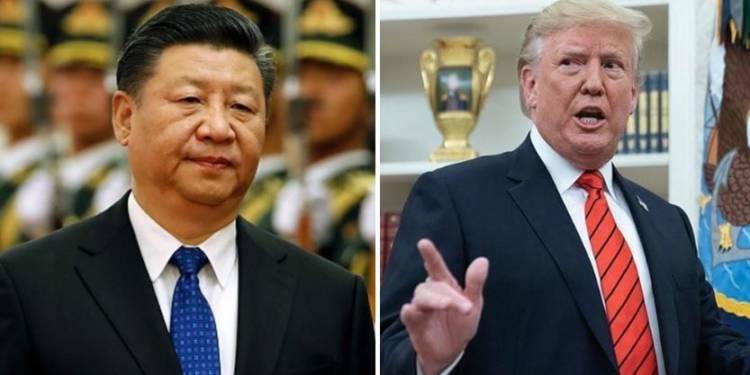Chinese President Xi Jinping wanted to hijack the global internet and alter the global discourse by dominating the most important form of communication known to modern civilisation. However, former US President Donald Trump foiled Xi’s plans by running a global campaign against Chinese 5G tech giant Huawei and also blocking the export of American semiconductors to China.
According to internal documents obtained by The Epoch Times, Xi personally directed the Chinese Communist establishment to focus its efforts on controlling the global internet. Jinping’s target was to demolish American leadership in the global internet.
In a January 2017 speech, Xi had described the “power to control the internet” as the “new focal point of [China’s] national strategic contest.” In the said speech, the Chinese President had also pointed out the US as a “rival force” standing in way of his global internet domination ambitions.
The Chinese President wanted the Chinese Communist Party (CCP) to control the content on global internet, in order to exert what Xi described as “discourse power” over communications and discussions on the world stage.
Xi also advocated “using technology to rule the internet” and achieve complete control over every aspect of the online world, including applications, content, quality, capital, and manpower.
The events of the past three years or so, do corroborate that Beijing tried to use technology for controlling the global internet. It tried to hijack the next-gen 5G internet networks, mainly through its telecom giant Huawei. However, China clearly failed because former US President Donald Trump stood in Xi Jinping’s way.
Had Chinese telecom companies with close links to the CCP managed to take hold of global 5G internet works in a highly monopolistic system, Beijing would have acquired substantial control over the global internet. The immediate consequence of such Chinese control would have been Beijing’s ability to control internet discourse and narratives.
In other words, China would have done to the global internet what Chinese internet censors do to Chinese citizens. Beijing would have been able to decide what an average user in democratic countries like the US would be able to access and what kind of content would remain hidden.
Just for the purpose of understanding what a China-controlled internet would look like, try to imagine a Coronavirus outbreak while Beijing controls internet networks across the globe. In such a situation, the CCP would have been able to censor everything under the sun which tends to implicate China.
Yet, Trump’s campaign against Huawei’s 5G technology did derail Xi’s internet domination dreams. Firstly, the ban on American companies from using telecommunication equipment manufactured by Huawei over national security risks itself did a lot of damage to China. The US is a huge internet market and losing it was an unsustainable jolt for China.
Secondly, the US ban on Huawei encouraged other democratic nations to take similar actions. Australia had already imposed a ban on Huawei 5G and the UK too decided to impose a similar ban last year. France too decided to phase out the Chinese telecom giant from its 5G networks last year.
Trump’s Huawei strategy clearly worked wonders, with leading democratic nations maintaining a safe distance from the Chinese 5G technology. Yet, Trump’s decision of banning the sale of semiconductors manufactured on American secretive design to China proved to be the final straw for Huawei and every other tech giant in China.
Semiconductors are the most essential input in consumer electronic goods including telecom devices, and therefore the ban handicapped China’s ability to influence global telecom and the internet.
The democratic world must actually remain grateful towards Trump. Had he not foreseen Xi’s internet domination plans and acted promptly, the Middle Kingdom would have been censoring us left, right and centre. If the internet still remains somewhat democratic, the entire credit goes to Trump.







